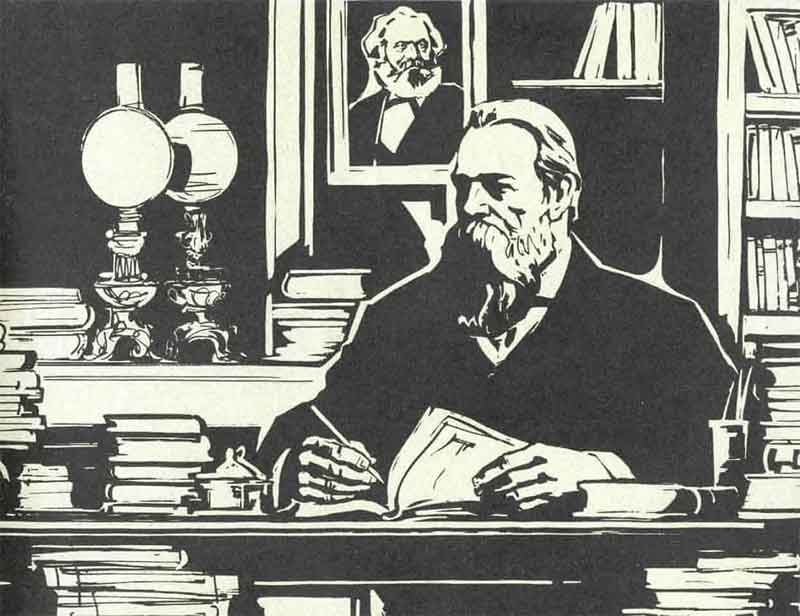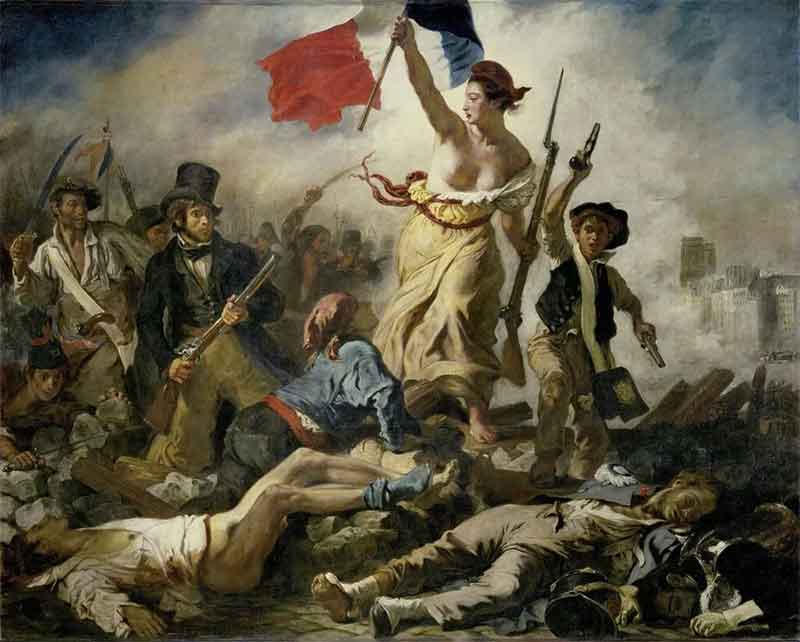
Marx regarded peasants as incapable of revolution, and it was the industrial proletariat that Marxists reposed their faith to defeat the Capitalist class in Europe. However, it was a different case in China because China was a semi-feudal, semi-colonial society during Mao’s time. China was an agrarian society. So, Mao took advantage of the large population of peasants and aroused class consciousness in the peasant class to defeat the landlord (bourgeoisie). Understanding China’s social structure, Mao Zedong reorients Marxism to revolutionise the peasant class in China. In this way, Marxism’s Sinification (Chinese influence) in China started.
Mao Zedong believed in mass mobilisation and voluntaryism. He espoused that the party should learn from the people, and the campaign should be a people’s campaign. Party should not dictate to the people. Mao Zedong persuaded the people rather than enforce the party manifesto on the people. Self-criticism and rectification were other components of the Sinification of Marxism in China. The process of self-criticism and rectification would enable the officials to keep in touch with the masses’ interests, which would aid in discarding false thoughts.
Mao Zedong further announced that revolution should be continuous because it is necessary to avoid corrupting the party and complacency. Willpower and determination are preconditions for revolution. Violence is needed, and it is part of the revolution. Thus, Mao Zedong stated that “Political power flows from the barrel of a gun.” He goes on to say that there has to be destruction for construction. In the People’s War, Mao Zedong talked about how to capture power. It has three stages. In the first stage, the revolutionary forces attempt to garner support in the hinterland to establish a revolutionary base. In the second stage, once revolutionary troops gained a foothold in the countryside, they made an effort to spread their movement to other areas. In the third stage, the revolutionary has enough strength to capture small cities and larger cities. Finally, seizing power from the bourgeoisie.
Another important concept was the mass line. It’s the way to organise the masses. The mass line examines the people’s needs and understands what is on their minds. For Mao Zedong, the mass line means ‘from the masses to the masses.’ On the other hand, Deng Xiaoping’s brand of Sinification of Marxism was economic centric. As Mao recognised peasants play a decisive role in political revolution, Deng recognised peasants’ potential to transform the Chinese economy. Deng created a democratic collectivist system and kept it separated from the state economy. They were responsible for their profits and production. He also instituted a Household Responsibility System that ensured the enterprises’ managers were accountable for gains and losses.
Also, Deng Xiaoping introduced market socialism in China. In market socialism, the market regulates production. After that, Chinese socialism included elements of capitalism. Now, China is open to foreign direct investment by creating Special Economic Zones (SEZs) in the eastern coastal provinces. In this way, China stuck to their ideological stand of Marxism, and at the same instance, China was able to profit from Capitalism.
After Deng Xiaoping, Jiang Zemin’s “Three Represents” strived to democratise China’s Communist Party without deviating from Marxist ideology. Jiang Zemin’s Three Represents are 1. Represents advanced social productive forces, which mean increasing economic production 2. Represents the progressive course of China’s advanced culture, which means cultural development 3. Represents the primary interests of the peoples, which mean political consensus. Three Represents a medium to gain trust from the middle class, minimise hiatus between rich and poor, and a strategy to establish legitimacy for the Communist Party of China to govern.
The next leader, Hu Jintao, proposed “Scientific Outlook on Development.” The Scientific Outlook on Development intends to improvise scientific socialism, adopt sustainable development and social welfare, increase democracy, and lead to a harmonious socialist society. Through the Scientific Outlook on Development, Hu Jintao believed in achieving sustainable growth. Scientific Outlook on Development also intends to lessen the ideological gaps among different groups and maintain state stability. It was a comprehensive measure to tackle social, political, economic and cultural issues.
China has reinvented itself as it progresses without eschewing the Marxist ideology. The incumbent President, Xi Jinping’s Socialism with Chinese Characteristics for a New Era, re-emphasised the importance of Sinification of Marxism in its peaceful development. Marxism in China is dynamic, which constantly adapts, adopts and metamorphoses into new ideas to suit the contemporary Chinese context without relinquishing the basic tenets of Marxism. Sinification of Marxism is not a paradigm shift from Marxism but an effort to blend Chinese into Marxism to sustain Marxism in China. Sinification of Marxism has not ended, but it is still evolving in China to cater to Chinese people’s needs and interests.
Prosper Malangmei, currently teaches Political Science at Maharaja Bodhchandra College, Manipur University. He holds a MPhil degree in Chinese Studies from Centre for East Asian Studies, School of International Studies, Jawaharlal Nehru University, New Delhi.
















































